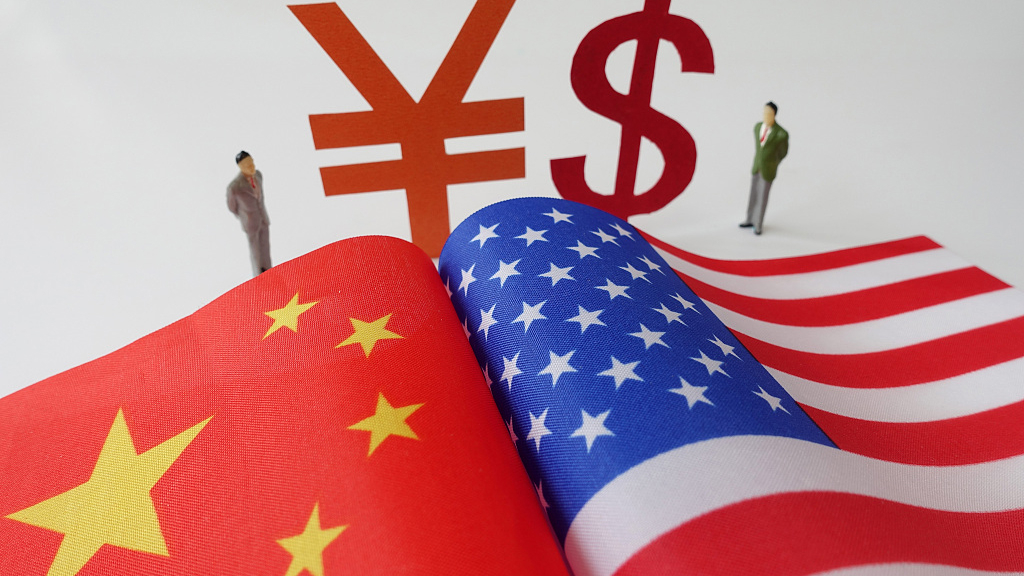
Domestic
22:48, 06-Jun-2019
MOFCOM: U.S. benefits greatly from trade with China
Updated
23:19, 06-Jun-2019
Cui Hui'ao, You Siyuan
02:15

At a weekly briefing on Thursday, China's Ministry of Commerce said the United States has benefited greatly from trade with China, and China will soon release details about the unreliable entity list.
Prior to the press conference, the ministry released a report emphasizing that China and the U.S. have both benefited from their trade ties, despite China's huge surpluses.
The ministry's latest report highlights two aspects in which America is benefiting from bilateral trade. Firstly, through selling to China – including exporting more than 240 billion U.S. dollars' worth of goods and services to the country in 2017. Alongside, there are the U.S. companies profiting from China themselves. These firms raked in 700 billion U.S. dollars in sales in 2017 alone.
Secondly, the U.S. benefits from the Chinese capital. By the end of 2017, Chinese investment in the U.S. amounted to 156 billion U.S. dollars, and China held 1.18 trillion U.S. dollars of U.S. debt. In addition, American financial institutions gained 33 billion U.S. dollars by investing in Chinese financial institutions.
"Both countries benefited from bilateral trade. The argument that the U.S. suffered losses and China has taken advantage of the U.S. does not hold water," said Gao Feng, the ministry's spokesperson.
Meanwhile, on China's newly-announced list of "Unreliable Foreign Entities," Gao told reporters the process of drawing up the list is underway, and more details will be released soon. The list was read by some as a response to the U.S. decision that puts Huawei Technologies on a blacklist, but Gao said companies that abide by Chinese laws do not have to worry.
"Unreliable foreign entity list does not target any specific field, company or organization. It is aimed at those who do not abide by market rules, deviate from the spirit of contracts or impose blockades or cut off supplies on Chinese enterprises for non-commercial purposes," said Gao.
Beijing has taken a tougher stance on the trade disputes in response to the recent escalation of tensions. The latest report on trade came four days after the release of a white paper, which pins the U.S. for taking full responsibility for the difficult trade talks.
Earlier U.S. President Donald Trump ordered tariffs of up to 25 percent on hundreds of billions of U.S. dollars of Chinese exports and his administration is preparing to extend them to 300 billion U.S. dollars more – almost all items shipped to the U.S. from China. China has reciprocated with tariffs of its own, among other measures.
Gao said whoever started the trouble should end it.
"How the trade talk will develop depends on the U.S. We will listen to what they say and watch what they do," said the spokesperson.

SITEMAP
Copyright © 2018 CGTN. Beijing ICP prepared NO.16065310-3
Copyright © 2018 CGTN. Beijing ICP prepared NO.16065310-3